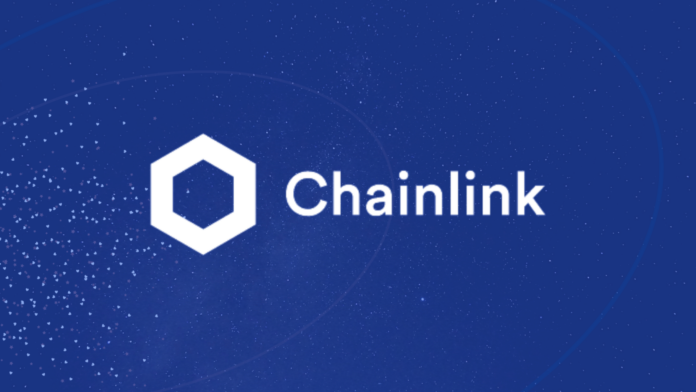Chainlink, the decentralized oracle network, has recently come under scrutiny as users discovered subtle alterations to the project’s multisig wallet. This change, which reduced the required number of signatures from 4-of-9 to 4-of-8, raised concerns among critics about centralized risk. One prominent critic of Chainlink, Chris Blec, voiced his apprehensions about the potential centralized nature of the project and its implications for the decentralized finance (DeFi) ecosystem. In response, Chainlink has provided an explanation for the modification and emphasized its role in various DeFi projects.
Background
Chainlink is a decentralized oracle network that enables smart contracts on the Ethereum blockchain to interact with real-world data and services. Oracles play a crucial role in blockchain applications by providing external information to trigger smart contract executions. Chainlink’s multisig wallet is an essential security measure that requires a certain number of signatures to authorize transactions. However, a recent adjustment to the required number of signatures has raised concerns about the project’s decentralized nature.
Concerns about Centralized Risk
Chris Blec, a well-known critic of Chainlink, has expressed concerns about the potential centralized risk associated with the project. He highlighted the fact that if Chainlink’s signers were to “go rogue,” it could potentially disrupt the entire DeFi ecosystem. Blec’s apprehensions are rooted in the reliance of various DeFi projects on Chainlink’s oracles for accurate price data. For example, projects like Aave and MakerDAO depend on Chainlink’s oracles to ensure the accuracy of their lending and stablecoin systems.
Criticism from Chris Blec
In a recent post, Chris Blec drew attention to the modification made to Chainlink’s multisig wallet. He pointed out that a wallet address had been removed from the wallet without any official communication from the company. Blec expressed concern about the potential centralized control of Chainlink’s price feeds, stating that the multisig could change the prices to provide any value it desired. This raised questions about the decentralization and trustworthiness of Chainlink’s oracle network.
Chainlink’s Response
In response to the criticism, Chainlink issued a statement explaining the modification to its multisig wallet. According to a spokesperson for the project, the alteration was part of a routine signer rotation process. The update was carried out to ensure the reliable operation of Chainlink services, with the multisig wallet maintaining its regular threshold configuration. The spokesperson emphasized that the modification did not compromise the decentralization and security of Chainlink’s oracle network.
Explanation of the Modification
The modification to Chainlink’s multisig wallet involved reducing the required number of signatures from 4-of-9 to 4-of-8. This change means that four out of the eight designated signers are now required to authorize a transaction. The adjustment was made as part of a periodic signer rotation process, a common practice in the industry to maintain the security and integrity of multisig wallets. The goal of this rotation process is to prevent single points of failure and enhance the overall security of the network.
Chainlink’s Role in DeFi Projects
Chainlink plays a crucial role in the DeFi ecosystem by providing accurate and reliable price data to various projects. DeFi platforms rely on Chainlink’s oracles to ensure the accuracy of price feeds, enabling decentralized lending, stablecoin systems, and other financial applications. The trustworthiness and decentralization of Chainlink’s oracle network are essential for the smooth functioning of the DeFi landscape. As such, any concerns or criticisms regarding the centralization of Chainlink’s operations are of significant importance to the broader DeFi community.
Introduction to Chainlink
Chainlink is a decentralized oracle network that has gained significant popularity in the blockchain industry. Its innovative technology enables smart contracts to interact with real-world data and services, bridging the gap between blockchain and the external world. The project has garnered attention for its robust infrastructure, security measures, and partnerships with major institutions. Chainlink’s oracle network has become a key infrastructure component for the DeFi ecosystem, ensuring the accuracy and reliability of price data in various financial applications.
Positive News for Chainlink
Apart from the recent concerns and criticisms, Chainlink has also experienced positive developments and partnerships. In June, Chainlink announced its collaboration with the US Depository Trust and Clearing Corporation (DTCC) on a SWIFT blockchain interoperability project. This partnership aims to accelerate the adoption of asset tokenization by leveraging Chainlink’s technology. Furthermore, Chainlink’s Cross-Chain Interoperability Protocol recently achieved institutional adoption when Australasian bank ANZ utilized the protocol for a cross-chain purchase of an ANZ-issued Australian dollar pegged stablecoin. These positive news items demonstrate the growing relevance and adoption of Chainlink’s technology in the blockchain industry.
Performance of Chainlink’s Native Token
Chainlink’s native token, LINK, has exhibited strong performance in recent weeks. Despite the concerns raised about the modification to Chainlink’s multisig wallet, the token has seen a significant increase in value. Currently trading at $7.24, LINK has remained relatively stable over the past day. However, it has gained 10.9% over the past week and over 21% over the past 14 days. These positive price movements indicate investor confidence in Chainlink’s technology and its ability to provide essential services to the DeFi ecosystem.
In conclusion, Chainlink has addressed concerns regarding the recent modification to its multisig wallet. The project has provided an explanation for the alteration, highlighting its routine signer rotation process to ensure the secure operation of its services. Chainlink’s role in the DeFi ecosystem is vital, as it provides accurate and reliable price data to various projects. While concerns about centralized risk have been raised by critics like Chris Blec, Chainlink’s positive news and the performance of its native token showcase the growing adoption and relevance of the project in the blockchain industry.















